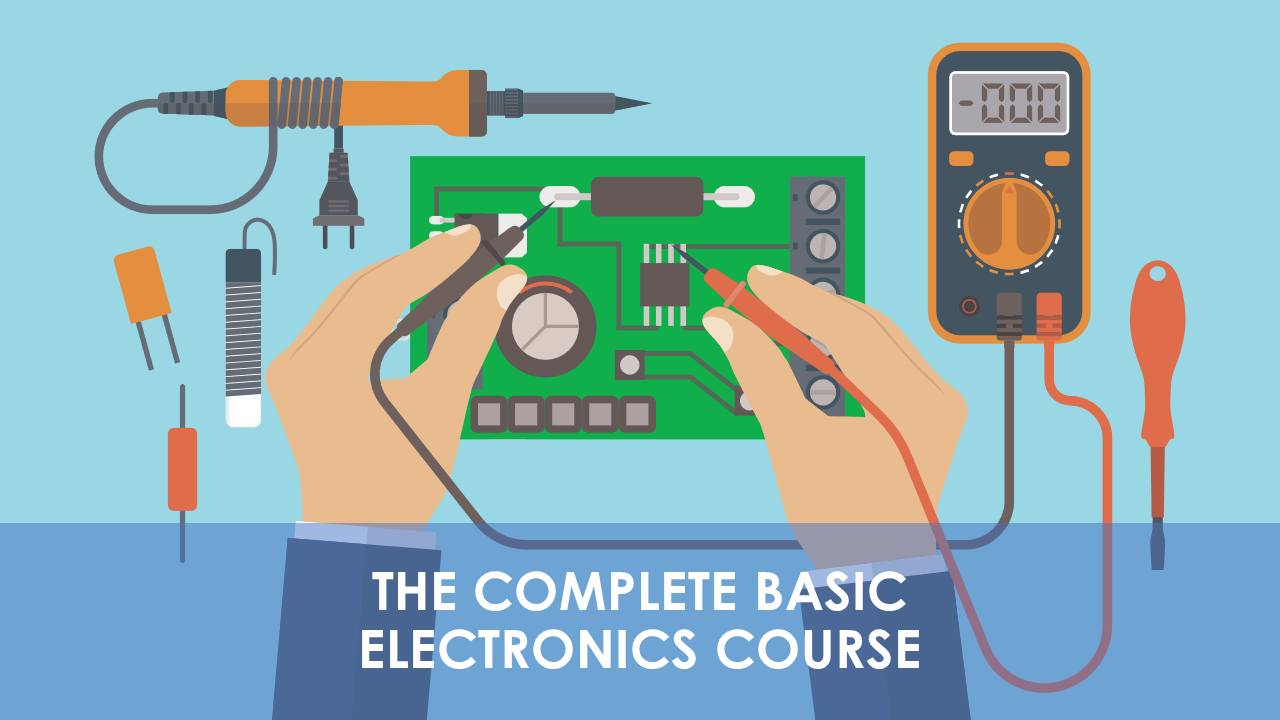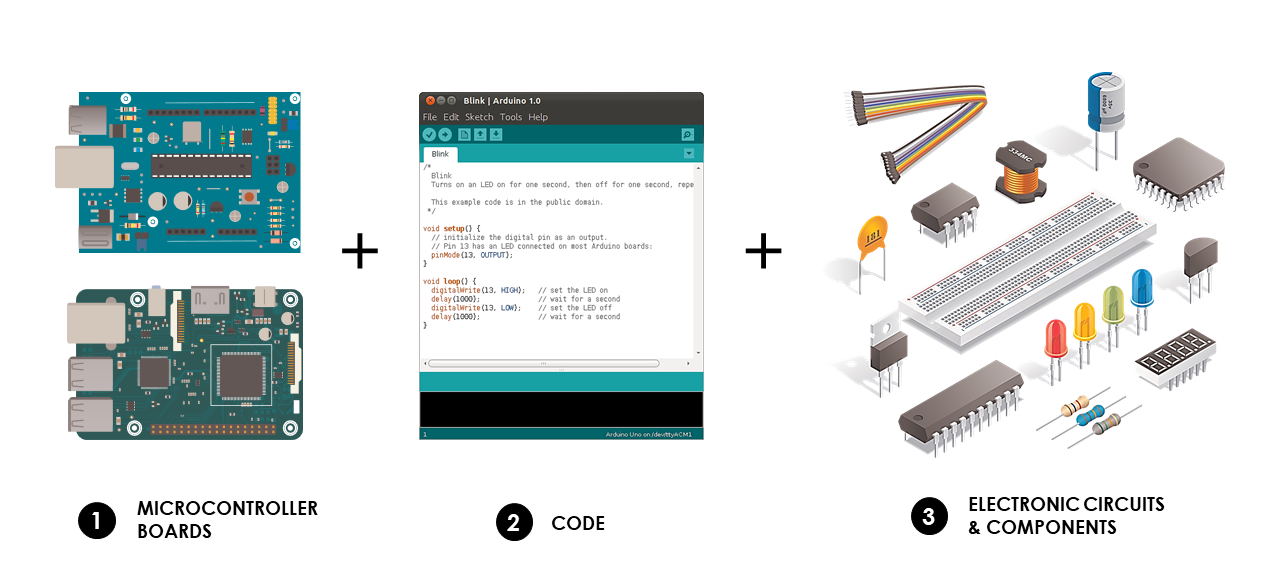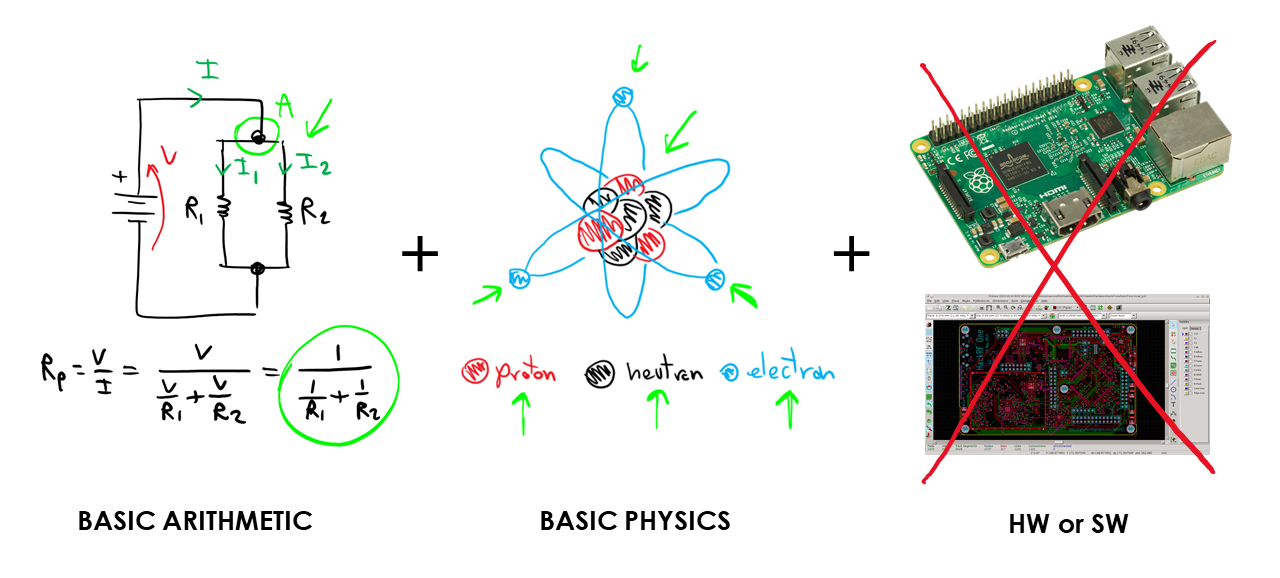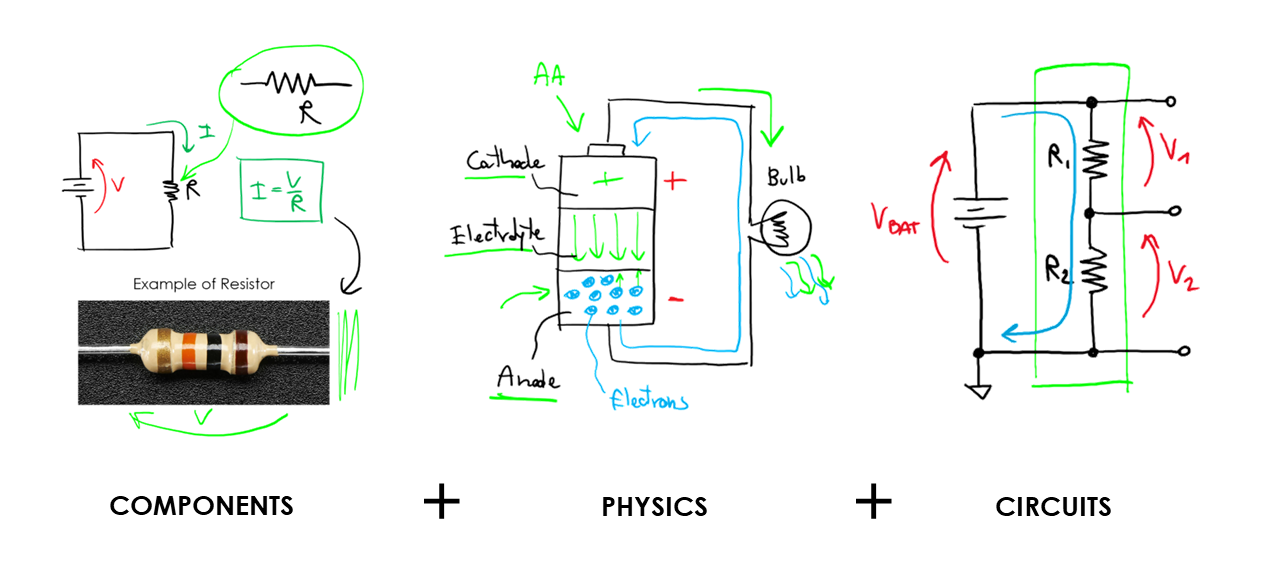The Complete Basic Electronics Course

Electronics is my passion. I have been playing with circuits since I was a kid and I continue to do so today as an Electrical Engineer in Silicon Valley. Building electronic products is incredibly rewarding, whether you do it professionally or just as a hobby. There is just something different and exciting about designing something physical that can be hold in one’s hand and that interacts with the outside World via sensors and actuators.
Why did I create this course?
Getting started with electronics has become much easier in recent years thanks to cheap electronic platforms and boards such as the Arduino and the Raspberry Pis. A little bit of coding paired with the right hardware is all that is needed to create amazing projects.
Designing an electronic project requires three main ingredients:
- Familiarity with a microcontroller (MCU) board such as the Arduino UNO
- Ability to write simple programs to tell the micro what to do
- Knowledge of how electronic components and circuits work

The web abounds with tutorials and material to help anyone to learn how to code and to use Arduino boards (ingredients #1 and #2), but it lacks courses on electronics that are both complete and easy to understand. This course provides the last ingredient and fills the knowledge gap. By the end of the course, students will be able to recognize the most important electronic components, understand a bit of the physics that make them work, discuss how they were selected and study simple electrical circuits. This knowledge will help makers to understand and design circuits based on popular development boards and to make cool projects.

This is an introductory course, so no previous knowledge of electronics is required. To get the best out of the lessons, students should be comfortable with some basic arithmetic as I will often write and solve equations, in particular when analyzing simple circuits. Understanding a bit of physics can help too, but it is not required. Most importantly, no special hardware or software is required.
What makes this course unique?
While most of the material available online tend to be high-level and focused on applications (e.g. it shows how to connect components on a breadboard to create a circuit), the goal of this course is to explain how components and circuits work by starting from the first principles of the underlying physics and fundamental laws and only later to use the acquired knowledge to explain how to design more complex circuits for different applications.
This is easier said than done, as electronics can be extremely complicated… To keep the course basic enough to be accessible to a large audience I made compromises and skipped some of the most complex explanations (sorry, no quantum physics this time) and provided instead intuitive metaphors from normal life experience to allows the students to grasp the most important concepts.

Loved by Thousands of Students!
After just over 2 years, more than 12,000 students have enrolled and have rated the course an average of 4+ stars. I’m incredibly very proud of the impact this material is having and above all to see students enjoying learning electronics with my help. Have a look at what my students think of the course:

A good course, very usefull for beginners in electronic ... I recommand — Alexander

Definitly, It matches for me. — Naim

It was good as it explained how electricity is works (current, amps) — Thabiso

Great course! Love it! — Kevin

Very succinct and direct explanations...easy to follow. — Nazim

Doskonały kurs. Nauczyłem się mnóstwa rzeczy. Odniesienia do hydrauliki...bezcenne! — Dariusz

A good basic knowledge of mathematical procedures is required to get the most out of this course. I also struggled with the Thereverin circuit quiz since no explanation had been given for the characteristics of a current generator, this does not get discussed until the diode section. I personally cannot Just accept formulae and need to be able to derive them myself, so for me the mathematics was both challenging and rewarding. This is very a educational course and College level in places. It is however great to have been taught by a bona fide electrical engineer and I now really understand key concepts which are very important as a grounding to the subject. — Adrian

Yes, it is a good match to what I expected, the explanations are clear and attempting the question has increased the interest of doing the course. The solutions section is very helpful. Thank you! — Varghese

Nicely explained, taken into account also physical phenomena and practical application. Really enjoyed taking the course. — Alexandra

This is excellent, easy to follow and well presented — David

One of the best courses I've ever done online.Thank you very much UDEMY! — Mariana

I like the white boarding style of the instructor. I can see the thought processes behind the examples, and the graphics are intuitive to understand! — Kenneth

Very basic things described clearly — Shakhawat
If you want to learn basic electronics give my course a chance. There is very little risk: if you are not satisfied, ask for a refund within 30 days and you will receive your money back, no questions asked.